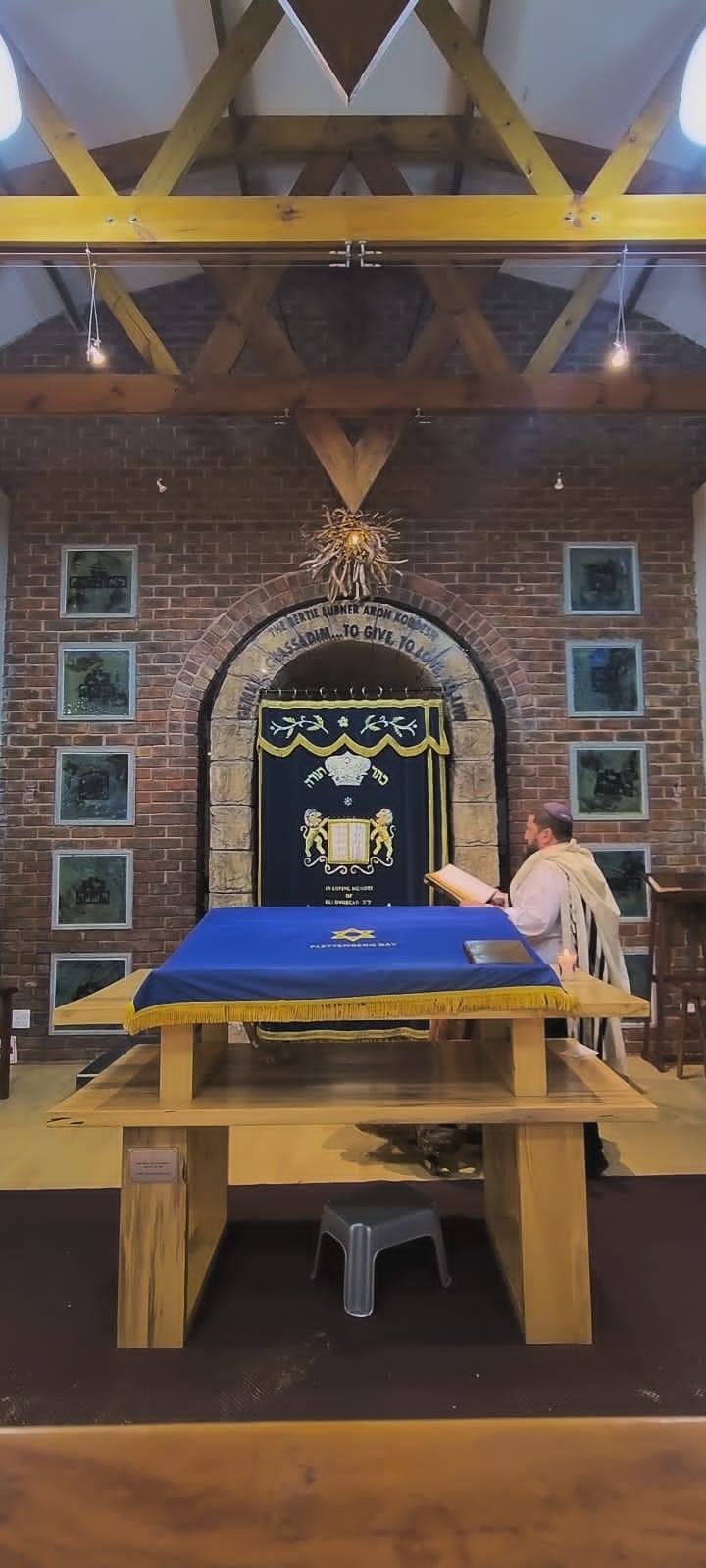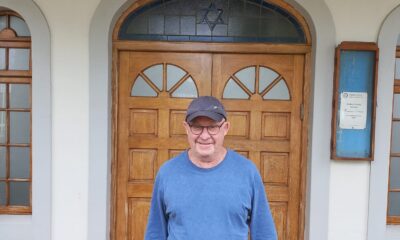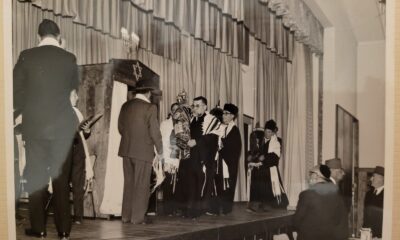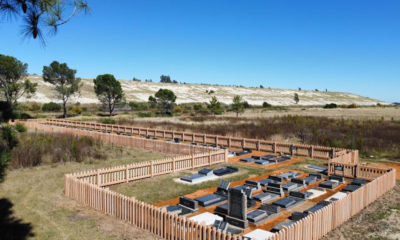
Community

Travelling ‘shulsmen’ ensure services continue in small centres
The tradition of Jews from larger South African Jewish communities visiting smaller country communities over the high holidays has been going on for decades. Now, as communities dwindle both within the big cities and the small towns, individuals and families remain committed to keeping this time-honoured tradition alive.
“For as long as the community wants to do this, I will continue to come for Rosh Hashanah and Yom Kippur,” says Nachi Ash, who has spent every yomtov for the past 23 years visiting the Kimberley Jewish community. “If there’s one Jew, I promise to bring nine.”
“It’s the most uplifting, meaningful yomtov,” says Ash. “Instead of being surrounded by a huge community and a full shul, it’s just 10 people or so. But it’s so powerful. It changes the community for the rest of the year. It’s when it feels its identity the most. Its beautiful shul is opened and its members see three full services a day, a full minyan, leining, davening, and the blowing of the shofar. The most important thing to me is that it uplifts the community, it gives its members the strength to continue, and it makes them feel alive.”
The relationship goes both ways, and Ash says he has developed wonderful friendships with members of the community, including its chairperson, Barney Horwitz, and his family. Ash and his friend, Yos Shishler, have come every year, from when they were teenagers. Later, Ash and Shishler brought their wives and children along for every yomtov. “My kids spent every yomtov of their lives at Kimberley Shul,” says Ash. “Now they’re all grown up and they’ve stayed in Johannesburg over the past two years, but that hasn’t stopped me from returning.”
Not even the COVID-19 pandemic stopped Ash. “I said to them, ‘We cannot break the cycle, which has been going since the community was founded in 1902. It’s the second oldest shul in South Africa. So we even continued to have COVID-19-safe services over those years.’”
Ash says he “takes his hat off” to Rabbi Moshe Silberhaft, who has been the driving force and co-ordinator of this initiative in recent decades. Says Silberhaft, “The programme began in 1949, when the country communities department was established [by the South African Jewish Board of Deputies (SAJBD)].”
Country communities used to pay for visitors to come, Ash says, which would cover their expenses. Nowadays, there aren’t the funds to do that, but volunteers still make the trip. “We take over a guesthouse and bring kosher food,” says Ash. “There have been many families who have joined us over the years. One family drives up from Cape Town every year.”
This year, Silberhaft will be in Bloemfontein for Rosh Hashanah. “I’ve been travelling since I was 14 to small communities, from when I was at Yeshiva College,” he says. “I started off in a town called Messina. Except for three yomtovs since then, I’ve been with communities around sub-Saharan Africa as the travelling rabbi for the SAJBD and now the Small Jewish Communities Association of South Africa.”
He has since guided other young men to follow in his footsteps. “What’s fantastic about this programme is that it’s not only for the benefit of small communities, it’s also for those that go out. They learn about country life and the challenges people experience.” Most importantly, they meet people from different walks of life and build long-lasting relationships, often returning every year.
Josh Marcus has been going to small communities since he was 13. “I went to Kroonstad for five years, Rondebosch for three years, and now Plettenberg Bay for three years. Twenty or more years ago, there was an abundance of places to go. Subsequently, there are far less places due to the dwindling of the communities. I co-ordinate with Plett Shul directly, as well as with Rabbi Silberhaft.
“I love helping people and using my strengths to assist with whatever I can,” he says. “As a chazan and singer, this falls into my repertoire. I lead services, read from the Torah, blow the shofar, and give sermons. The most uplifting part is being able to bring people to shul who wouldn’t have access to a minyan or services otherwise. The most challenging aspect is tailoring the services to the community. While all the prayers are done correctly, it’s about singing the specific, known songs and emphasising the correct prayers, as recognised by the community.”
He often brings his family along, but once left his family over Pesach. “Though it was difficult, it was rewarding as people came specifically for yomtov, and they knew that the shul would be manned.
“I would advise all those able to do this to do it,” he says. “It’s rewarding and you get to meet a lot of people. It also gives you the opportunity to see new places and experience new things. We need to remember the smaller, outlying communities. It’s our heritage. We can move forward and grow only when we recognise where we came from.”
Gidon Erster has been travelling to country communities for more than 20 years. “I’ve gone mainly for the high holidays, but I’ve also helped out over a Shabbos when there has been a need. I’ve been to Gqeberha, Cape Town, Hermanus, Bloemfontein, and Durban. I’ll be going to Bloemfontein this year. I was there last year as well. I don’t get to choose where I go, I fill a gap for a community that needs help.”
As a Barmitzvah teacher, “I love to sing, lead shul services, and read from the Torah. A friend of my father’s once told me that Hashem blessed me with the ability to sing, and that I must always use this blessing for good, wherever and whenever I possibly could.
“Knowing that you are responsible for ensuring that the few Jewish men and woman in the smaller communities in South Africa can still celebrate Rosh Hashanah and Yom Kippur or a particular Shabbos is the most uplifting aspect of doing this,” he says. “The most challenging aspect is definitely being away from my family for Rosh Hashanah, Yom Kippur, or Shabbos.”
Still, he would encourage “all those who have the ability and skills to daven and lein from the Torah to do this, even just once. It’s such a rewarding and inspiring opportunity. Not everybody knows how to lead the services or read from the Torah. If you have that talent and skill, you must use it. I want to thank all the communities that have hosted me over the years and given me the special task of ensuring that shul services continue as often as possible, wherever they may be in South Africa.”










